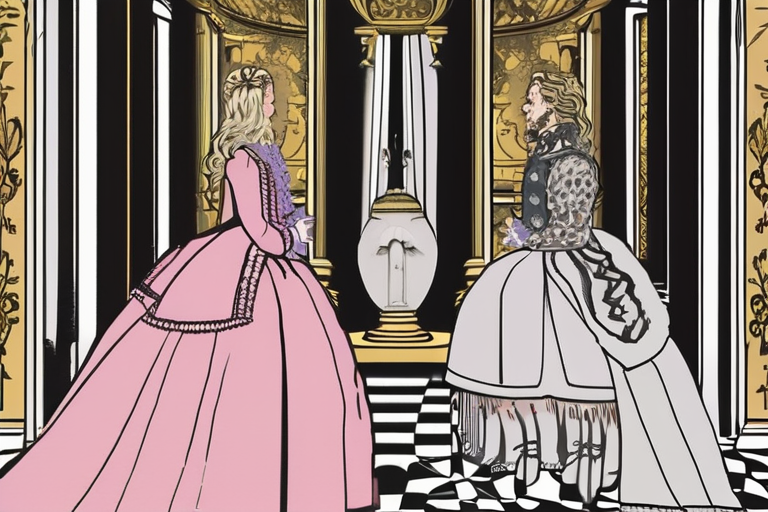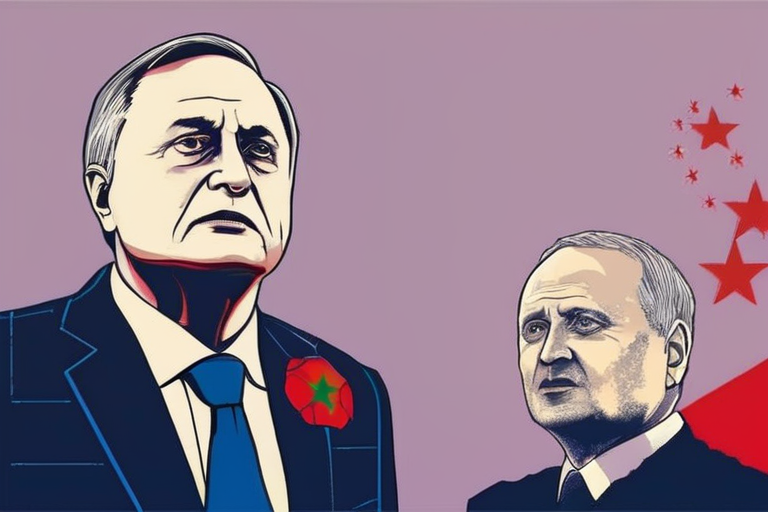The Absurdity of Power: "Versailles" Pokes Fun at the Elite
In a world where satire is more relevant than ever, a new film is about to shake things up. "Versailles," a biting absurdist comedy from producer Pimienta Films and director Andrés Clariond Rangel, is set to premiere at the Black Nights Film Festival in Tallinn, Estonia. This topical tale of wanna-be autocrats, inspired by the likes of "The Favourite" and "The Death of Stalin," promises to leave audiences laughing – but also thinking.
As we delve into the world of "Versailles," it's clear that this film is not just a comedy, but a commentary on the absurdity of power. The story follows Chema, a young Mexican politician played by Cuauhtli Jiménez in his first leading role, as he navigates the complexities of high-stakes politics. But what sets "Versailles" apart from other satirical films is its unique blend of cinematic realism and theatrical excess.
"We wanted to create a film that was both funny and thought-provoking," says Clariond Rangel, who co-wrote the script with Alo Valenzuela. "We drew inspiration from the likes of Luis Buñuel and Federico Fellini, who were masters of blending comedy and social commentary."
The result is a film that is both hilarious and unsettling, like a punchline delivered with a wink. "Versailles" stars Cuauhtli Jiménez alongside Maggie Civantos, a Spanish actress known for her roles in "Vis a Vis" and "Cable Girls." The chemistry between the two leads is undeniable, and their performances add depth to the film's already sharp satire.
But what about the inspiration behind this film? Clariond Rangel explains that he was drawn to the world of politics after witnessing the rise of populist leaders in recent years. "I wanted to explore the absurdity of power and how it can be wielded by anyone, regardless of their qualifications or experience," he says.
The trailer for "Versailles" has just been released, and it's clear that this film is not afraid to push boundaries. With its bold color palette and over-the-top performances, it's a visual feast that promises to leave audiences talking long after the credits roll.
As we enter an era of increasing polarization and social unrest, "Versailles" arrives at a timely moment. This film is a reminder that satire can be both entertaining and thought-provoking, and that sometimes, the best way to comment on the world around us is through laughter.
The Making of "Versailles"
To bring this ambitious project to life, Pimienta Films turned to MMM Film Sales, which has picked up distribution rights for the film. "We're thrilled to be working with MMM," says Clariond Rangel. "They share our vision for this film and are committed to bringing it to audiences around the world."
The production team behind "Versailles" is a diverse group of creatives from Mexico, Spain, and beyond. The film's cinematographer, Cinematográfica CR, brings a unique visual style to the project, blending cinematic realism with theatrical excess.
As we speak with Clariond Rangel, it's clear that he's passionate about this project and its themes. "We hope that 'Versailles' will inspire audiences to think critically about power and politics," he says. "And maybe, just maybe, they'll laugh a little along the way."
A Conversation with Andrés Clariond Rangel
Variety: What inspired you to write "Versailles"?
Clariond Rangel: I was drawn to the world of politics after witnessing the rise of populist leaders in recent years. I wanted to explore the absurdity of power and how it can be wielded by anyone, regardless of their qualifications or experience.
Variety: How do you balance satire with storytelling?
Clariond Rangel: For me, it's all about finding that delicate balance between humor and commentary. We drew inspiration from the likes of Luis Buñuel and Federico Fellini, who were masters of blending comedy and social commentary.
Variety: What message do you hope audiences take away from "Versailles"?
Clariond Rangel: I hope that audiences will leave the film thinking critically about power and politics. And maybe, just maybe, they'll laugh a little along the way.
The Future of Satire
As we look to the future of satire in cinema, it's clear that films like "Versailles" are pushing the boundaries of what's possible. With its bold visuals and sharp commentary, this film is a reminder that satire can be both entertaining and thought-provoking.
As we enter an era of increasing polarization and social unrest, films like "Versailles" will only become more relevant. They offer a unique perspective on the world around us, one that's both humorous and unsettling.
In the words of Clariond Rangel, "We hope that 'Versailles' will inspire audiences to think critically about power and politics." And with its timely release at the Black Nights Film Festival, it's clear that this film is ready to shake things up.
*Based on reporting by Variety.*



 Hoppi
Hoppi

 Hoppi
Hoppi

 Hoppi
Hoppi

 404news
404news

 Hoppi
Hoppi

 Hoppi
Hoppi











